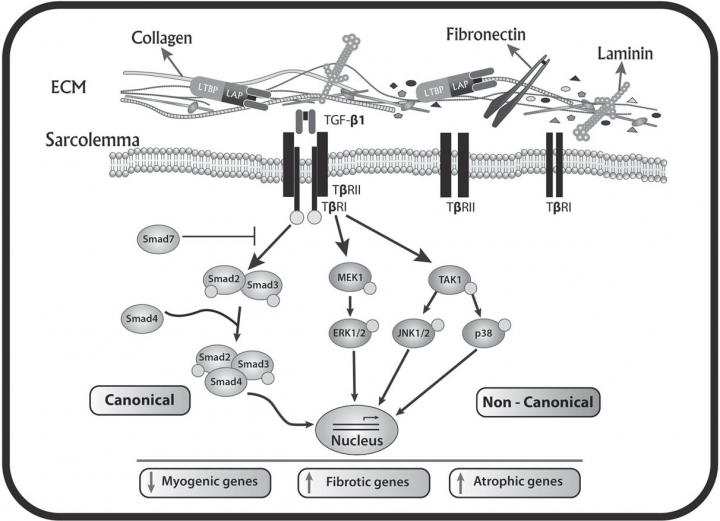This article by Dr. Claudio Cabello-Verrugio et al. is published in Current Protein & Peptide Science, Volume 19, Issue 12, 2018

Credit: Bentham Science Publisher, Claudio Cabello-Verrugio
The innate immune system comprises of various soluble factors that provide the first line of defense against pathogens. Transforming Growth Factor type Beta 1 (TGF-β1) is one such soluble factor that also regulates skeletal muscle function, and it one of the most studied factors. TGF-Beta 1 is a potent modulator of immune and glial cell functions. It is known to have a play in to cardiac fibrosis and muscle atrophy. It also regulates the activity and function of satellite cells that inhibits myo-genesis.
In this review, researchers present different types of mechanisms and cellular targets which are involved with the effects of TGF-Beta 1 muscles, such as pothological the processes like fibrosis, atrophy and inhibition of regeneration. Furthermore, the reviewers also present an update on the development of new strategies with therapeutic potential to inhibit the deleterious actions of TGF-β in skeletal muscle.
###
This article is Open Access. To obtain the article please visit http://www.
Media Contact
Faizan ul Haq
[email protected]
Related Journal Article
http://dx.




